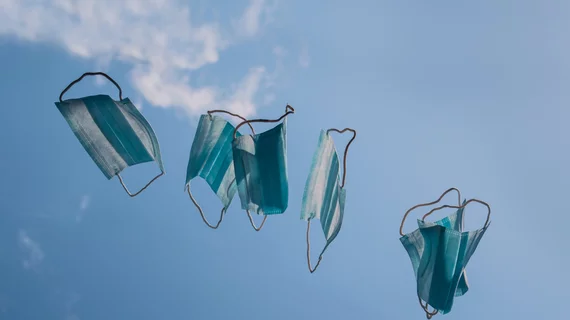Hospitals: Maybe don’t trim your PPE stockpiles just yet
Seeking to thwart transmission of communicable respiratory diseases among patients, visitors and staff, hospitals in a handful of states have reinstated masking mandates.
The development follows a nearly 17% uptick in COVID-19 hospital admissions in late December as tracked by the Centers for Disease Control.
CDC data also show some 236 counties, mostly away from the coasts in around 30 states, experiencing a spike in COVID admissions of 20 patients per 100,000 population.
Close to 1,000 counties had a moderate December increase, 10 to 19.9 patients per 100,000.
The rest, 1,977 counties, were relatively unstressed by COVID, with fewer than 10 admissions per 100,000 population.
Meanwhile—unsurprisingly, given the season—rates of flu have been increasing too.
On the bright side, the CDC believes RSV infections are stagnant.
Be that as it may, numerous news operations are reporting a possible re-masking trend in the making.
ABC News counts six states as of Jan. 2 with masking mandates: California, Illinois, Massachusetts, North Carolina, Washington and Wisconsin.
Epidemiologist John Brownstein, PhD, of Boston Children’s Hospital, tells the network there’s “nothing unusual” about the present rate of respiratory infections.
However, he says, “the data still reflects an increase in illness and, as we know, masking will be helpful, regardless of the respiratory pathogen.”
The mini-masking movement comes less than a month after many hospitals reported emptying storerooms of outdated PPE supplies by the ton.
The CDC’s COVID data tracker is here.

